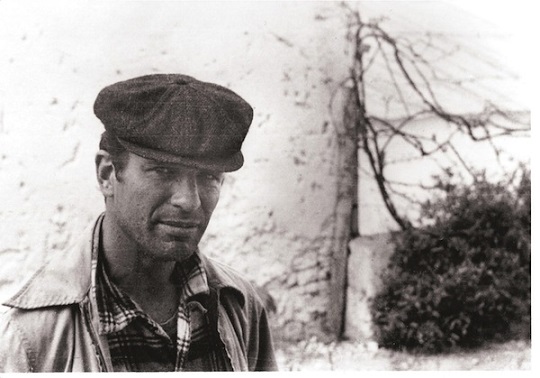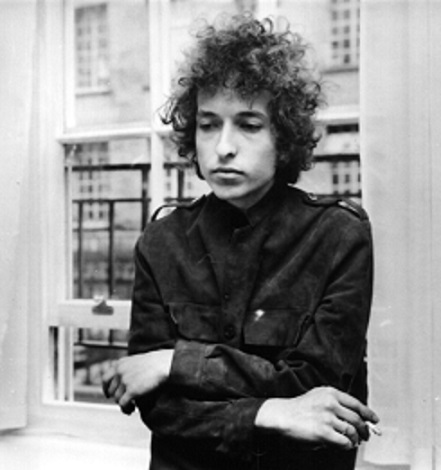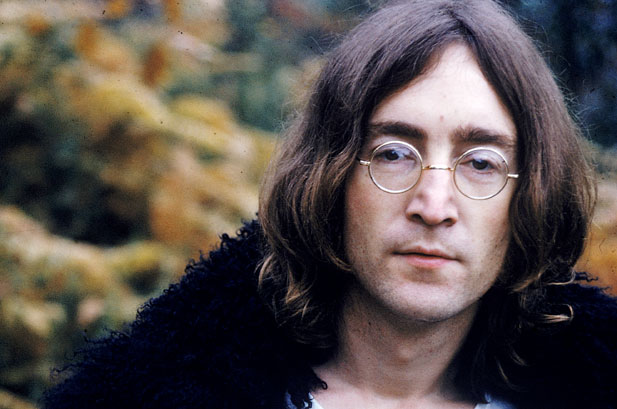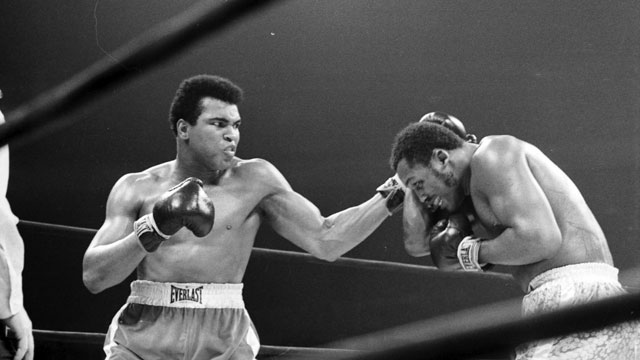
INFLUENCES, PART 6
JACK
KEROUAC

Jack
Kerouac (1922-1969) is, along with poet Allen Ginsberg, considered to be one of
the major pillars of the Beat Generation, that post-World-War-Two eruption of
countercultural creativity: of geniuses
and outcasts uncomfortable in the mainstream, struggling and stretching for
life, for realness, for something different and more important than convention.
Kerouac excelled at the novel, turning out Beat classics such as
On the Road,
Visions of Cody, The Subterraneans,
Desolation Angels,
The Dharma Bums and
Big Sur. The wonderful thing about
Kerouac is that he combined real literary knowledge and ability with a fierce
craving to know and experience life, the life not only of interesting,
struggling artists like himself, but also the life of troublemakers, fringe
people, and working class and lumpen people usually unknown to the educated
white middle class: the people you could find on the street, on the bus, in the
field, in the night. What Whitman
achieved in poetry with his euphoric ravings, Kerouac was able to achieve in
prose with his run-on sentences, his enthusiastic flowing passages, his
whatever-comes-to-his-mind observations, his street talk and real-people talk.
The energy of his writing and unconventionality of it perfectly suited
the soul of the Beat Generation, and served as a vehicle for bringing its
hungering essence into the bloodstream of American culture.
Foundations were laid for the vast social upheaval which was to follow in
the 1960s... Kerouac had a huge
influence on me just as I got out of
college. The crazy vigor of the
writing and the glimpse of worlds I had yet to know, and knew I must, enticed
me. Shortly thereafter I went into New
York City to follow in his footsteps: to
get real, to learn, to be a part of the stream of life I was still too far
removed from, to write, and to lift my writing to its true purpose by letting
the honesty and rawness Kerouac had showed me take over.
In The March of the Eccentrics,
the life of the Beatnik (or post-beatnik boho writer) is described in detail;
and the narrative style of Freddy Wells in the early chapters, before he seems
equally influenced by the neo-Victorian 'Victor Rutherford', is clearly indebted
to Kerouac. Yeah, Kerouac's
one of the big influences...
BOB
DYLAN

In some
ways, it seems that the work which the Beat Generation accomplished through
poetry and prose, was carried on during the heart of the 1960s countercultural
'revolution' by musicians and music.
Foremost among these was Bob Dylan, an intense, brilliant musician and
lyricist, alert to the social milieu (with his head up like a prairie dog), full
of attitude and short on deference to failing institutions and ideologies; a
thin, vulnerable-looking kid with the appearance of an orphan who developed a
layer of bluster to defend himself, and who, recreating himself as a myth, went
poking around everywhere he wasn't supposed to.
His irreverence and tough, challenging spirit latched on to politics,
peace, civil rights, and other burning issues of the day, and combined with his
heartfelt raw love songs to give him a multiplicity of dimensions which no one
else could match. His songs became
the anthems of a generation: songs
like Blowin' in the Wind,
The Times They Are A-Changin, Like a
Rolling Stone, Maggie's Farm,
Mr. Tambourine Man, and
Knockin on Heaven's Door.
Somehow, he was able to get away with constructing songs that went on and
on with one tiny bridge and five hundred identical verses.
Maybe it was the endless fascination provided by his lyrics or by
something charismatic about his presence (which could be sensed even on a record
track): something sharp and edged with feeling that could not be buried by the
outward monotony. Whatever it was,
Dylan's music and iconoclastic image reached the heart of the restless and the
discontented, the searching and the dissatisfied, and played a major role in
channeling that stirring towards the vague but powerful goals of the 60s rebels
who were somehow seeking a perfect world:
a world of racial equality and peace, a world of freedom from hypocrisy
and lies, a world not run by corporations or poisoned by regimens of work which
underestimated the worth of the people it chewed up for pocket change.
Like many of my generation, I did my time as a Dylan clone, learning to
play the guitar (slightly), getting wires for my harmonica so I could blow away
as I strummed (I never really picked), writing my own content-oriented lyrics
aimed at transforming the world, and singing away to the horror of my neighbors
who couldn't wait for the coming of winter and the closing of my window.
Later, I tried to do the band thing, recognizing the fact that music is
just so direct and so there, that it
beats literature to the punch in terms of having an impact on others (which is
what I wished to have). The
difference between music and literature is the difference between a drug taken
in pill form, and one taken as an intravenous injection, shot directly into the
veins.
The speed of it, the intensity...
But literature was my forte, and I could do it without worrying whether
the rhythm guitar was in a catatonic state, or the lead guitar had mixed his
dates up, or the vocalist was in the mood to change the genre of the song on the
spur of the moment. Lots of
interesting experiences, not all of this earth... eventually I drifted back to
what I could do best. Dylan's influence
will, nonetheless, be seen throughout The
March of the Eccentrics. His songs are mentioned and figure in the plot; the
60s spirit, in its tough New York City expression, is prevalent throughout the
book, and Dylan was in the middle of that; there are musicians, there is
ambition, there is music linked to social change, and music raised high like a
flag above the conformist ingestion.
No doubt: Dylan is
everywhere, in the words and between the lines.
JOHN
LENNON

John
Lennon (1940-1980) was another of the great musical icons of the 1960s, bringing
a somewhat different feel, spirit, and history to the world stage.
Of course he began as one of the Beatles and along with Paul McCartney,
with whom he pooled his vocal and songwriting abilities, he powered that amazing
group to international and perhaps eternal stardom.
The interesting thing about Lennon is that the world got to watch him
grow from that "charming, irreverent, cheeky, and loveable lad" (all his faults
were at that time delightful) - he was a nonconformist but still very much a
mainstream character - into the bearded, drug-saturated, temporarily
guru-influenced prophet of a great cultural tipping-over.
The huge fan base he had built up before he dove deep into the
transformative vibes was still attached to him as he did so, and in that way a
great number of 'normal' youths from the center of society were drawn with him
into the new realm of countercultural living and aspirations which was to be the
peaceful core of a momentous revolution that would change the earth forever.
There would be peace, love, fairness, no war - there would be justice,
there would be freedom, there would be people dancing in the fields of their
talents and passions, no longer chained to radioactive jobs or slaving for the
corporations. During these days,
Lennon, who seemed to slip in and out of takes - to bounce back and forth
between utopian hazes and rough Liverpoolian working-class cynicism - to hover
back and forth between his own genius/sensibilities and a lifelong competition
with Dylan - captured the imagination of millions.
More than any other song, Imagine
(recorded after he had gone solo), put its stamp on the psyche of the 60s
tribe, defining its most cherished values, at least on the emotional level.
Lennon became a kind of God, revered as the bard of the coming utopia,
and the keeper of hope. His
outwardly magical relationship with Yoko Ono added to the mystique - the lack of
prejudice displayed in the interracial marriage; the irrelevance of the size
difference (equality remained, and in a world where the large dominate the
small, that seemed special); the power of the soul connection (everyone wanted
that kind of partnership, to be that tight with someone); the beautiful way they
came together to sing Happy Christmas
(War is Over), emerging as the First Couple of Peace.
And then, after several years of retirement, Lennon's reemergence as a
major artist, and his stunning assassination outside the Dakota apartment
building (Dec. 8, 1980), a dreadful blow to millions who had never let him go.
It was like a death in the family and
like the collapsing of a world.
Some lost their faith at that moment, while others found their faith.
In The March of the Eccentrics,
that faith remains, and the legacy of John Lennon, which altered my brain,
clings to it like an invisible vapor that is both nowhere and everywhere.
SMOKIN' JOE FRAZIER

Finally
in this list of influences we have the former heavyweight boxing champion of the
world, Smokin' Joe Frazier (1944-2011).
What???????!!!!!!! I know
many will be shocked by that, but let me break it down.
Boxing is a brutal sport which should probably be abolished; and yet, at
the same time, it is a kind of ritual or drama played in front of the people, in
which the conflict and struggle that fills life is represented physically by two
men attempting to subdue the other, within the confines of rules meant to
preserve their lives. (We are not
quite as ruthless as the Romans.)
Life IS a struggle, of that there is
no doubt; and the harder your life is, the more you will discern its resemblance
to a boxing match, or a war. The
reenactment of this war in the boxing ring allows us - the embattled warriors of
everyday life - to see at work the forces of skill, determination, patience,
courage, endurance and will, which we need to survive our own battles.
In the presence of Joe Frazier I saw, more clearly and in their rawest
and most impressive forms displayed, the virtues of the heroic heart,
unbreakable willpower, tremendous endurance, and pride that was stronger than
physical hurt. On March 8, 1971,
in particular, all politics and social expectations aside (for we were supposed
to choose favorites according to our political niches), I saw a man who should
have been beaten a hundred times persevere to win;
I saw him gouge out of history the respect that he had till then been
denied, living in the shadow of others; I saw his love for his family, his
homage to his ancestors, his desire to have his moment in the sun, to carve his
name on the rock of the ages, to know he had had an effect and been more than a
speck of dust in the balance. I saw
a man fighting for his life, fighting to beat extinction, fighting to live in
the most authentic sense, which is to rise to your level. Smokin' Joe Frazier
that night was my teacher. He put a
lesson in my mind that I never forgot, which is that, yes, Life is filled with
hardship - you are going to get hit and hurt by it - but if you have something
you really believe in, something that matters more than anything else, something
that is your calling, something that you must do in order to be able to say that
you lived, maybe you won't be broken by those blows
- maybe you will take those punches, and keep on coming - maybe you won't
quit. Many times while I was
working on The March of the Eccentrics,
I reached points where I felt I could not go on, I felt washed-up, burned-out,
spent. Losses, loneliness,
opposition, terrible blows, grinding mediocrities battered me, wore me down.
I felt, at times, like the only man on a planet no one even knew existed
-
what is all this for?
For whom is it for? I
could hear my footsteps crunching down on the empty plain, each one proof of my
solitude. Sometimes, I felt like
dropping, like letting go. At those
moments, I would go to the video of March 8, 1971, the Fight of the Century
between Smokin' Joe Frazier and Muhammad Ali (bless him also, a mighty warrior).
And I would watch Joe do it all over again:
take it all, bring it all, leave nothing
behind. And as I watched him,
traces of his energy, his courage, his nearly divine determination, would flow
from his example into the cracks in my will, keeping me on my feet, keeping me
from being overwhelmed by the volume of my work, keeping me from being
overwhelmed by the time it was taking, keeping me from being overwhelmed by the
loneliness I was working under, keeping me at it, believing in it, fighting for it.
I honestly believe that without Joe Frazier and what he taught me through
his own tremendous sacrifice, there would be no
March of the Eccentrics, it would
have been swallowed up by the years, lost somewhere in the abyss of all the
hardship, doubt, blows to the self-esteem, invisibility, weights on my back.
And I would be just another man who had once dreamt of being a writer;
another man who had dreamt a dream that was too much for him.